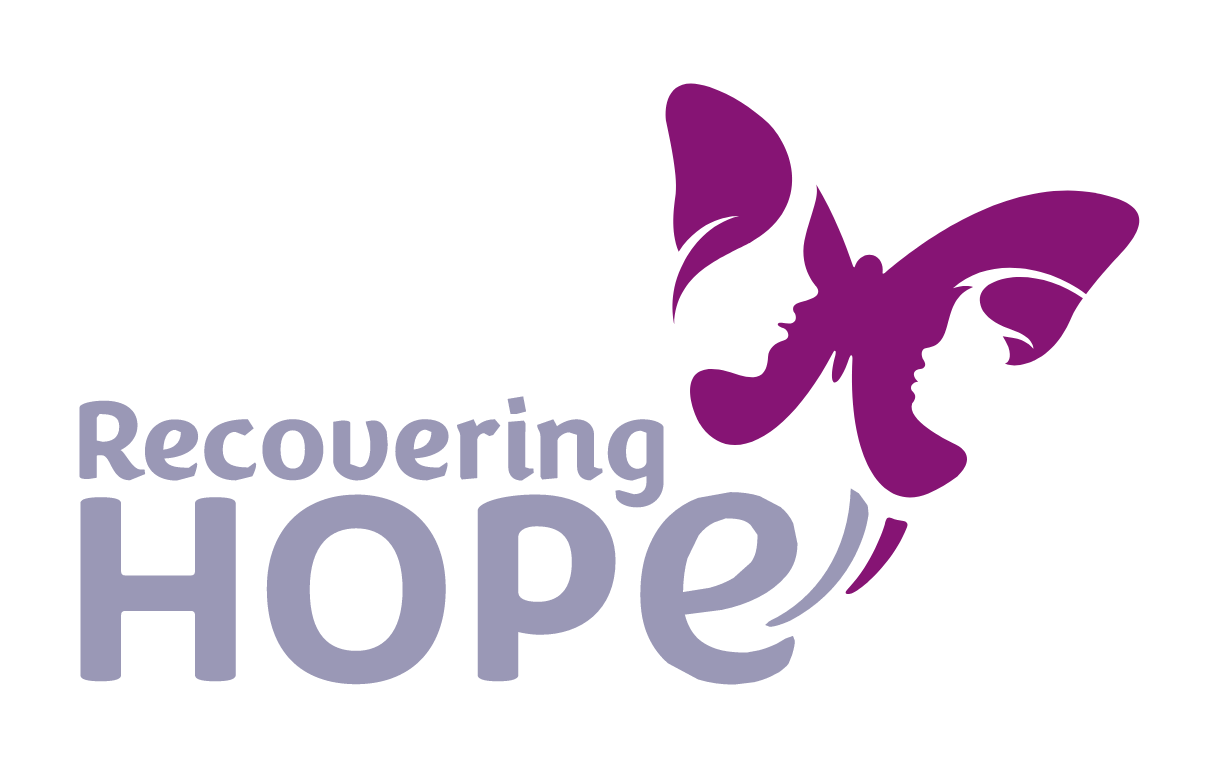
Women’s Residential Substance Use Treatment
The Strength to Change. The Spirit to Live.
Where Families Can Heal Together.
Nestled on 47 acres in the serene landscape of Mora, Minnesota, our Women’s Residential Treatment Program offers a safe and supportive environment where women, including those with children and pregnant women, can courageously confront their challenges related to substance use and mental health disorders. Our program is specially designed to empower you on your journey to recovery. With our licensed onsite daycare, we ensure that your children receive exceptional care while you focus on your path to healing. Your unique journey is our priority, and together, this is where families can heal together.
Overview
Family Centered Care
At Recovering Hope, clients have the opportunity to identify and explore issues related to substance use and mental health disorders through individual sessions, psychoeducational groups and process groups. Families will be included in various aspects of treatment planning, continuing care planning and individual family sessions. Family workshops may also be recommended as an additional component of client care.
Facility
108-bed modern residential facility with safe and secure facility equipped with state-of-the art video-monitoring surveillance technology.
Providing two residential treatment care levels:
High Intensity Care | ASAM 3.5
- The foundation treatment phase in which physical, psychological and social assessments are conducted to determine the scope of individual client needs.
- High-intensity clients participate in a minimum of 30 hours of weekly treatment programming.
- On average, clients remain at the high-intensity care level for 30 days.
Medium Intensity Care | ASAM 3.1
- After completing high-intensity care, clients are required to transition into the medium-intensity care level, where treatment focuses on intensive group therapy.
- Medium-intensity clients participate in 20 hours of weekly treatment programming
- Additional programming offered to facilitate client’s gradual reintegration into society.
- On average, clients remain in medium-intensity care for 30–80 days.
Co-occuring Treatment Methods
What is Co-Occuring?
Recovering Hope recognizes many individuals with substance use disorders often suffer from co-occurring mental health disorders, such as major depression or general anxiety. Recovering Hope provides integrated substance use and mental health services designed to address each client’s individual needs and recovery goals. Clients receive a diagnostic mental health assessment within 10 days of admission.
What Co-Ocurring Services do we offer?
With a comprehensive mental health counseling center located on its Mora campus, Recovering Hope gives clients convenient onsite access to family and individual counseling, psychiatric nursing, eye movement desensitization and reprocessing therapy (EMDR), and assessments.
Liscensed Onsite Daycare for young children
Specialized Care For Families
At Recovering Hope, we prioritize the preservation of family bonds, especially for those with young children, as an integral part of successful recovery from substance use disorders and associated traumas. Young children up to the age of 5 are welcomed to reside onsite with their mothers during residential treatment, promoting a family-centric approach to healing. Our licensed early childhood educators and dedicated daycare staff are trained in evidence-based, trauma-informed interventions to meet the unique needs of each child, fostering a nurturing environment.
Family Bonds
At Recovering Hope, we emphasize the preservation of family bonds as a vital aspect of a healthy recovery journey from substance use disorders and associated traumas. Particularly for those with young children, maintaining these connections is paramount. To support this, we allow young children up to the age of 5 to reside onsite with their mothers during residential treatment.


Getting Started
We’re here to help. Call our admissions team at 1-844-314 HOPE
To schedule an appointment, make a referral, or speak with a member of the Recovering Hope Treatment Center admissions team, please contact us at:
Phone: 844-314-HOPE
Fax: 651-323-2558
Email: Referrals@recoveringhope.life
Recovering Hope offers complimentary transportation to prospective clients seeking admissions into residential treatment. Please request transportation assistance when scheduling an admissions appointment. In addition, please allow adequate time in your commute to arrive on schedule for your admission consultation.
Upon arrival, prospective clients will undergo a 10- to 15-minute medical evaluation to determine if Recovering Hope can properly meet their needs. If prospective clients are assessed as being under the influence or at risk for severe withdrawal symptoms, they may be referred to off-site detox services prior to admission to Recovering Hope.
Services Offered
- Case management
- Individual counseling
- Group counseling
- Individualized treatment plans
- Psychoeducational groups (Relapse prevention, women and addiction, co-occurring disorders, dialectical behavior therapy (DBT) skills, recovery maintenance, creative arts, relationships)
- Licensed onsite daycare for residents’ children
- Nutritious meals and snacks
- Comprehensive aftercare and discharge plans
- 24/7 Residential advocates (Around-the-clock access to advocates who guide your daily routine, provide milieu management, and help maintain a safe, healthy community for recovery)
- Complimentary admission transportation
Additional Services
- Family education, workshops and services
- Leisure activities (seasonal gardening group, fitness classes)
- Individual, couples or family therapy
- Eye movement desensitization and reprocessing therapy (EMDR)
- In-home parenting services (via Kanabec County Public Health)
- Parenting classes
Frequently Asked Questions?
We understand that taking the next step in your recovery journey can be difficult.
We’re here to help every step of the way.
How long is treatment?
Treatment length is determined following an assessment of client needs by Recovering Hope’s treatment team. The assessment is conducted by a counselor who reviews a potential client’s case and their individual treatment goals with Recovering Hope’s treatment team. Average length of stays vary depending on each client’s previous treatment experience, diagnosis and information provided in the assessment. On average, clients live at Recovering Hope for 45-77 days. Keep in mind each case is different.
What can I expect when I arrive for admission at Recovering Hope?
It’s normal for clients to feel a mix of emotions (fear, anger, shame, resentment) as they enter residential treatment. The RHTC staff is trained to offer the support and assistance clients need to transition to their new surroundings as quickly and easily as possible. Here’s an overview of what to clients can expect in their first 72 hours at Recovering Hope:
- When clients arrive at Recovering Hope, our staff walks them step-by-step through the admissions process.
- Clients are allowed to bring young children up to age five to stay with them during treatment. Recovering Hope staff will care for child(ren) while clients complete the admissions process.
- Clients undergo a 10- to 15-minute medical evaluation to determine if Recovering Hope can properly meet their needs.
- If clients are assessed as being under the influence or at risk for severe withdrawal symptoms, they may be referred to off-site detox services prior to admission to Recovering Hope.
- Upon admission, a room will be prepared the client. Children will share a room with their mother. If no children are involved, clients share a room with another resident.
- Client belongings will undergo a routine search and then will be placed in the assigned room. If prohibited items are discovered during the search, the items will be placed in a locked storage site and will be returned upon client discharge from treatment.
- Clients will participate in an introductory session with a licensed alcohol and drug counselor, who will conduct an assessment and diagnostic evaluation.
- A care level and temporary treatment plan will be established. (Clients will receive a master treatment plan within 10 days of residency following completion of assessments and diagnostic evaluations.)
- Clients are required to stay on the Recovering Hope campus for medical and mental health monitoring. Off-campus privileges are assigned on a case-by-case basis.
What items am I allowed to bring?
A dresser is provided for storage of clothing and toiletry items. Two average-sized suitcases of clothes and other items will fit in the space provided. We also provide a locker and lock for storage of money and other valuables.
What information required at admission?
- Valid photo ID
- Copy of medical insurance card
- 30-day supply of all prescription medication (medication must be packaged in the original bottles received from the pharmacy)
- Discharge paperwork (if transferring from a hospital or detox facility)
- Personal belongings (see FAQ section below for details)
Are there age limits?
Women must be at least 18 years old to admit, and there is no upper age limit.
What if I don't like Recovering Hope?
We hope clients can meet their goals while residing at Recovering Hope. However, if Recovering Hope does not meet a client’s needs, we will work with them to identify an alternative treatment center. Our staff will provide support and access to resources to identify each client’s next step in recovery.
In addition, clients are free to end treatment with us at any time. However, we hope clients choosing to leave our facility before meeting their treatment goals will continue treatment at another licensed facility.
Will I be allowed to bring and smoke cigarettes?
Yes. A designated outdoor smoking space is available to clients between 6 a.m. and 9 p.m. Smoking is prohibited between 9 p.m. and 6 a.m. Clients are encouraged to use lozenges or patches through the night while smoking is prohibited.
Recovering Hope offers smoking cessation services for clients who would like to quit smoking while in treatment; however, these services are optional.
Can I choose my counselor?
Initially, clients will be assigned a counselor from those who have schedule availability. However, it is important to us that clients feel a positive connection with their counselors. Therefore, after admission, clients are free to request a change to any available counselor.
What is the food like?
Recovering Hope serves three nutritious meals and two snacks per day. Special diets are accommodated for those with medical or dietary restrictions. Personal snacks also can be stored in assigned lockers.
What items am I prohibited from bringing with me to treatment?
- Products containing alcohol in the first 3 ingredients
- Aerosol-based products, or inhalants
- Candles, wax warmers, essential oils, incense, air fresheners, Epson salt, bath bombs and bath salts
- Hair dye and self-tanner
- Bath paint
- Sex and intimacy toys
- Cough drops, topical creams, ointments, medicated powder, bleach, eye drops, and vapor rubs
- Instant coffee, cappuccino mix, energy drinks, kombucha
- Items requiring a refrigerator or freezer
- Electrical appliances such as space heater, clothing irons, steamers, microwaves and other small appliances.
- Door locks and child locks of any kind
- Illicit drugs and mood-altering substances, including Kratom and CBD oil/tablets/wax
- Hammers, power tools, and flammables such as oil/gasoline
- Weapons of any kind
Will I have a roommate?
Yes. Clients without children will be placed in a room with another woman. Clients with a child will share a room with their child.
How many children can I bring with me?
You can bring one child with you who is up to 5 years old.
Our Residential Team!
Medical Team:
Our dedicated team of healthcare professionals includes registered nurses, licensed practical nurses, and medication technicians. They are here to assist you with your day-to-day medical needs, including medication administration.
Treatment Team:
Comprising licensed alcohol and drug counselors, this team ensures you have a primary counselor to guide you through your journey. You’ll have regular weekly meetings with them to support your progress.
Mental Health Team:
Our mental health support is provided by licensed professional mental health counselors and licensed associate marriage and family therapists. They are trained to help you address your mental health concerns and work towards recovery.
Residential Advocates:
Available 24/7, our residential advocates are focused on creating a safe and supportive community for your recovery. They assist with milieu management and provide guidance for your daily routine, ensuring a nurturing environment for your progress.
